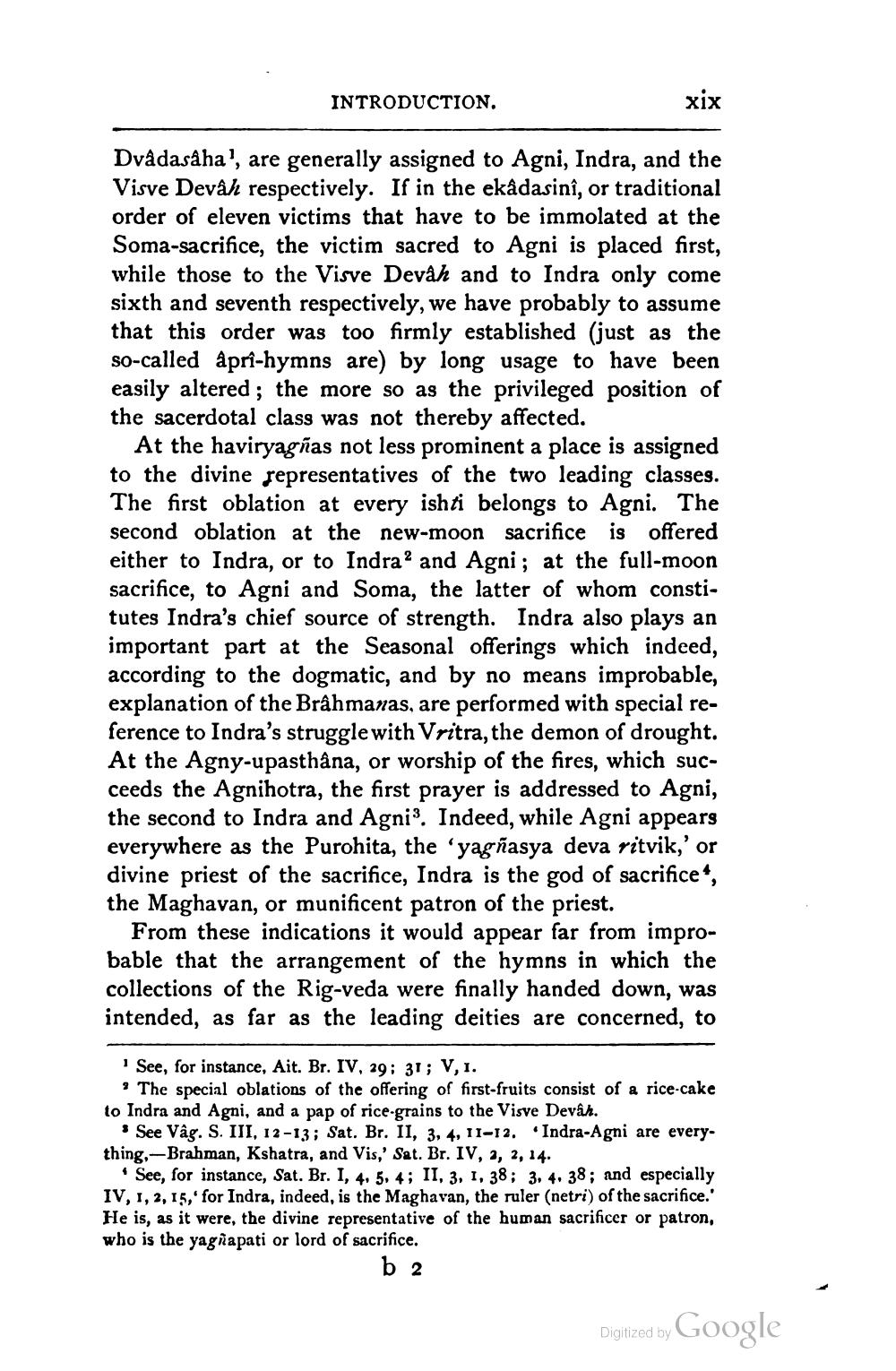________________
INTRODUCTION.
xix
Dvadasâha', are generally assigned to Agni, Indra, and the Visve Devâh respectively. If in the ekâdasinî, or traditional order of eleven victims that have to be immolated at the Soma-sacrifice, the victim sacred to Agni is placed first, while those to the Visve Devâh and to Indra only come sixth and seventh respectively, we have probably to assume that this order was too firmly established (just as the so-called aprî-hymns are) by long usage to have been easily altered; the more so as the privileged position of the sacerdotal class was not thereby affected.
At the haviryagñas not less prominent a place is assigned to the divine representatives of the two leading classes. The first oblation at every ishti belongs to Agni. The second oblation at the new-moon sacrifice is offered either to Indra, or to Indraand Agni; at the full-moon sacrifice, to Agni and Soma, the latter of whom constitutes Indra's chief source of strength. Indra also plays an important part at the Seasonal offerings which indeed, according to the dogmatic, and by no means improbable, explanation of the Brahmanas, are performed with special reference to Indra's struggle with Vritra, the demon of drought. At the Agny-upasthâna, or worship of the fires, which succeeds the Agnihotra, the first prayer is addressed to Agni, the second to Indra and Agni?. Indeed, while Agni appears everywhere as the Purohita, the 'yagñasya deva ritvik,' or divine priest of the sacrifice, Indra is the god of sacrifice, the Maghavan, or munificent patron of the priest.
From these indications it would appear far from improbable that the arrangement of the hymns in which the collections of the Rig-veda were finally handed down, was intended, as far as the leading deities are concerned, to
See, for instance, Ait. Br. IV, 29; 31; V, 1. · The special oblations of the offering of first-fruits consist of a rice-cake to Indra and Agni, and a pap of rice-grains to the Visve Devâh.
* See Vâg. S. III, 12-13; Sat. Br. II, 3, 4, 11-12. Indra-Agni are everything.-Brahman, Kshatra, and Vis,'Sat. Br. IV, 2, 2, 14.
See, for instance, Sat. Br. I, 4, 5, 4; II, 3, 1, 38; 3, 4, 38; and especially IV, 1, 2, 15,' for Indra, indeed, is the Maghavan, the ruler (netri) of the sacrifice.' He is, as it were, the divine representative of the human sacrificer or patron, who is the yagnapati or lord of sacrifice.
b 2
Digitized by Google




